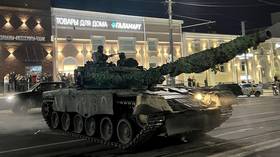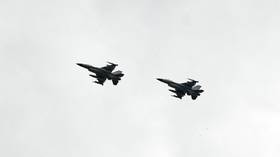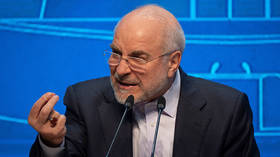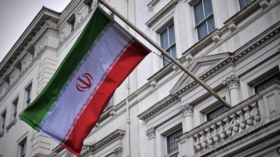China comments on Wagner mutiny

Beijing fully supports Russia’s efforts to stabilize the situation in the country following the aborted insurrection by the Wagner private military company, the Chinese Foreign Ministry has stated.
The ministry posted a response on its website on Sunday after journalists requested a statement on China’s official position on the matter.
“This is Russia’s internal affairs,” a spokesperson for the ministry said. “As a friendly neighbor and a comprehensive strategic partner of coordination in the new era, China supports Russia in maintaining national stability and achieving development and prosperity,” the official added.
On Sunday, Russia’s Foreign Ministry announced it had held talks with Beijing on a number of issues, including the rebellion. According to a statement on the ministry’s Telegram channel, Deputy Foreign Minister Andrey Rudenko had met with Chinese Foreign Minister Qin Gang during a working trip to Beijing.
“The Chinese side expressed support for the efforts of the leadership of the Russian Federation to stabilize the situation in the country in connection with the events of June 24, and reaffirmed its interest in strengthening the cohesion and further prosperity of Russia,” the Russian ministry said in a statement.
It also noted that the two nations assessed the current state of relations highly, and confirmed their readiness to develop them even further.
The Wagner PMC launched its mutiny late on Friday. Its chief, Evgeny Prigozhin, announced a “march of justice” to Moscow after accusing the Russian military of striking one of the group’s field camps. The Russian Defense Ministry rejected his claim as a “provocation.” On Saturday, Wagner forces seized control of a military HQ in the southern Russian city of Rostov-on-Don and began moving towards the capital.
In an address to the nation on Saturday morning, Russian President Vladimir Putin labeled Wagner’s actions as treason and the “backstabbing of our country and our people.”
Later in the day, Prigozhin agreed to end the uprising and withdrew his forces in exchange for “security guarantees,” as part of a deal brokered by Belarusian President Alexander Lukashenko. The Wagner chief cited the desire to avoid bloodshed as the reason behind the decision.













